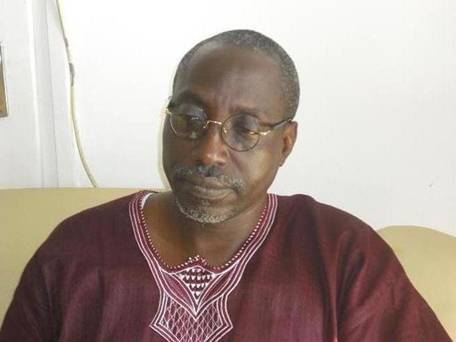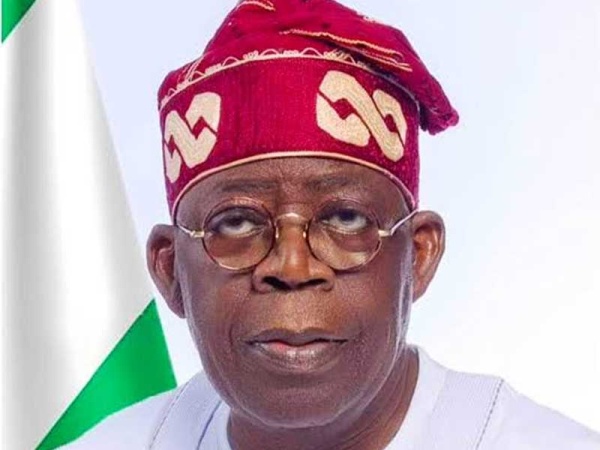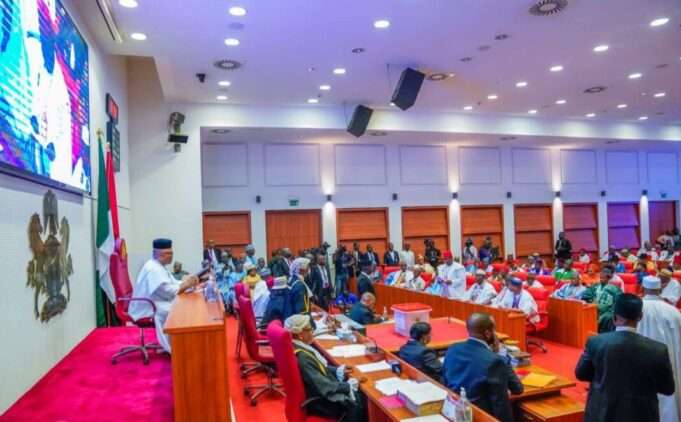
HOW CONSENSUS CANDIDACY ERODE INTERNAL DEMOCRACY IN NIGERIAN PARTY POLITICS
BY PROFESSOR ABIODUN RAUFU

By Professor Abiodun Raufu
GREATRIBUNETVNEWS–IN recent years, Nigerian political parties have increasingly turned to the mechanism of “consensus candidacy,” a process through which party leaders, particularly governors handpick a single aspirant for an elective position and present that person as the party’s unified choice. The manner in which this practice has become entrenched in Nigeria’s political culture has raises deep concerns about the decline of internal democracy, the erosion of accountability, and the weakening of democratic participation within party structures.
Across Nigeria’s major political parties, the phenomenon of consensus candidacy has rapidly become the norm rather than the exception. In many states, party organs routinely bypass open primaries and instead rally around a pre-selected aspirant who is presented as the “only viable option.” In practice, this process often reflects the preferences of political insiders or powerful state actors rather than the will of the rank-and-file members.
And no political party is immune from this anti-democratic virus which attempts to prevent interested bonafide members of a party from being nominated for political offices simply because the oga at the top has already assigned the tickets to his favored candidates. The practice not only undermines the spirit of internal competition but also contradicts the provisions of the 2022 Electoral Act. Scholars and commentators have observed that the language of consensus has now become deeply embedded in Nigeria’s political lexicon, a troubling sign that elite control is replacing participatory politics.
Supporters of consensus arrangements often justify the practice as a pragmatic approach to maintaining party unity, minimizing intra-party conflict, and presenting a united front before elections. However, critics argue that, in reality, consensus candidacy has become a tool for elite domination, a system where political powerbrokers impose their preferred candidates under the guise of unity. This trend, they warn, threatens to exclude aspirants, alienate members, and weaken the foundation of democratic participation within political parties.
Yet, internal democracy within political parties is not merely a procedural requirement; it is the lifeblood of democratic governance. When members are empowered to choose their leaders and candidates through transparent and competitive processes, the resulting representatives carry a stronger mandate and legitimacy.
For one, open competition ensures legitimacy. Candidates who emerge through fair primaries are more likely to enjoy grassroots support and enthusiasm during general elections. Second, internal democracy enhances accountability and responsiveness. Aspirants who must appeal to party members tend to articulate clearer policy positions and are more likely to listen to the concerns of the electorate. Thirdly, primary elections serve as a training ground for leadership, allowing new political actors to gain experience, articulate visions, and challenge entrenched elites.
Conversely, when parties operate as closed systems dominated by powerful elites, they become breeding grounds for godfatherism and patronage. The average Nigerian politician behaves as a sovereign treating the people who voted him into power as foot mats to be trampled upon. The consensus system allows the imposition of candidates from a few members upon the rest, creating hereditary successions from godfathers to political sons, a practice that is anti-democratic in all ramifications and capable of undermining the essence of democracy in the country.
The key issue in Nigeria’s growing reliance on consensus candidacies lies in the blurred distinction between genuine consensus and outright imposition. A true consensus emerges only when all aspirants voluntarily agree, after genuine consultation and negotiation, to support one candidate. However, what often occurs in Nigerian politics is an imposed candidacy masquerading as consensus, where aspirants are pressured or coerced to step down for a predetermined candidate.
Legally, the 2022 Electoral Act recognizes consensus as a legitimate form of candidate selection but sets clear conditions to prevent abuse. The law states that any party adopting a consensus candidate must obtain the written consent of all cleared aspirants, confirming their voluntary withdrawal from the race. Furthermore, it mandates that a special convention or congress be held to ratify the choice of the consensus candidate. Unfortunately, compliance with these provisions is often entirely ignored. The consequence is that consensus has increasingly become a convenient tool for political manipulation.
The abuse of consensus candidacy however has far-reaching implications for Nigeria’s democracy. First, it can lead to disenchantment by party members. When ordinary party members feel excluded from decision-making, they become disillusioned, less likely to participate in party activities, and less motivated to mobilize during elections. Second, it reduces competition and innovation. By suppressing internal competition, parties deny themselves the opportunity to identify capable new leaders or fresh ideas, thereby entrenching mediocrity.
Third, it breeds internal fractures. Aggrieved aspirants may feel the need to defect to rival parties to actualize their ambitions, work against their own party’s candidate, or instigate factional crises. Fourth, consensus politics undermines public trust. When voters perceive that candidates are handpicked by godfathers rather than chosen through open processes, it weakens public confidence in both the party and the democratic process. Furthermore, unbridled consensus practices contribute to democratic backsliding, as elections become mere formalities rather than genuine contests of ideas and leadership.
Scholars warn that if this pattern persists, Nigerian party politics risks reverting to pre-democratic norms characterized by elite patronage rather than popular participation. Parties may continue to exist as electoral machines controlled by a few, rather than as democratic institutions representing the will of their members.
Restoring internal democracy requires both institutional and cultural reforms. Political parties must adopt clear and transparent rules that outline how consensus or primaries should operate, ensuring that all aspirants understand the process. Genuine transparency demands that any consensus agreement must involve the voluntary and documented consent of all aspirants, not coerced endorsements.
Moreover, open contest is the mainstay of democracy and must remain the default method of candidate selection. When consensus fails or is disputed, parties should revert to primaries, whether direct or indirect, in line with the law. Party leadership should also be held accountable for violating internal procedures, and independent monitoring by civil society and the media should be strengthened.
Equally important is a cultural shift. Nigerian politics must move away from the notion that governors and even the president are all-powerful decision-makers. Instead, members should be treated as stakeholders with real influence over decisions. This is because the absence of credible internal democracy in political parties gives most elections in Nigeria the semblance of a coup d’état.
The rise of consensus candidacy in Nigeria may appear to promote unity and stability within parties, but in practice, it often erodes the very foundations of democracy. By silencing internal competition, alienating members, and consolidating power among governors and other powerful political office holders, parties risk transforming themselves into undemocratic structures that merely mimic democratic forms but are in actual fact authoritarian platforms for grabbing political power.
To deepen Nigeria’s democracy, political parties must reform not only who they select but how they select them. The challenge is as cultural as it is legal. It is a call to return political parties to their members, to make participation meaningful, and to rebuild trust in the democratic process. Unless this is done, the so-called consensus approach may well become the instrument through which Nigeria’s democracy continues to deteriorate and over time become an unacceptable form of governance to the generality of Nigerians…
Professor Raufu, former Editor of Nigerian Tribune and ex-Managing Director and Editor-in-Chief of National Mirror Newspapers, is an Associate Professor of Criminal Justice at Southern University and A&M College, Baton Rouge, Louisiana in the United States of America.







